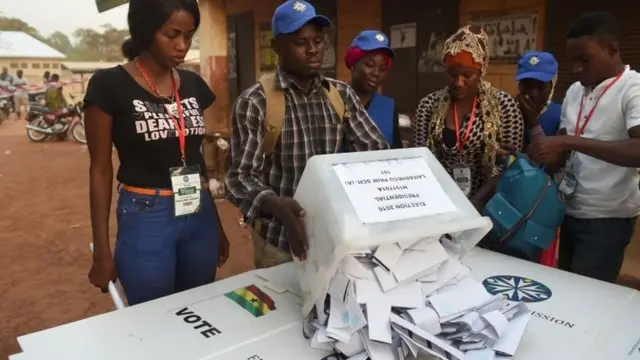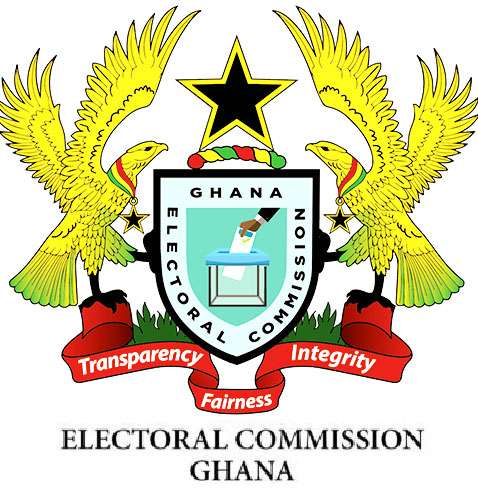Prof. Kwaku Azar Asare, a governance fellow at CDD Ghana, has expressed concerns about the Electoral Commission’s communication regarding the ballot shortfall.
He highlighted that the effectiveness, clarity, and credibility of the Commission’s communication are undermined by several unresolved issues demanding urgent attention.
He pointed out that the EC’s memo frequently employs terms such as “shortfalls” and “discrepancies” without offering adequate explanations or precise definitions.
Consequently, Prof. Asare raised critical questions about the nature of these shortfalls, asking whether they pertain to missing ballot papers, printing errors, numerical mismatches, or other underlying problems.
“The lack of precision in language invites speculation and does little to reassure the public about the integrity of the process. The memo states that regional staff identified the shortfalls during verification but fails to explain how or why these discrepancies occurred. Were they due to printing errors, logistical oversights, or something else?
“This omission leaves critical questions unanswered: Why do shortfalls occur? Are the printers failing to align with the provided ballot statistics? What specific issues were discovered? When exactly were these discrepancies identified?”
Prof. Kwaku Azar Asare
Prof. Asare further questioned why the ballot shortfalls, if they occurred in other regions, are only being disclosed now.
He also wondered whether these issues were identified at different times or if they had previously been overlooked without proper attention.

He pointed out that the EC’s memo fails to clarify the timeline of discoveries across various regions, raising concerns about the consistency, transparency, and timeliness of the Commission’s communication process.
Additionally, Prof. Asare noted that the memo dedicates considerable space to defending the Commission while accusing critics of “acts of mischief” and “maligning the Commission.”
He asserted that while it is crucial to address misinformation, the confrontational tone of the memo risks alienating the public and further eroding trust in the Commission’s credibility. “As a public institution, the Commission’s role is to bring clarity and foster confidence, not to appear combative or adversarial”.
EC Urged to Improve Transparency, Address Ballot Shortfall Concerns
Furthermore, Prof. Kwaku Azar Asare noted that the memo references reprinting and destroying faulty ballots but lacks detailed information about these processes, including how they are monitored, who oversees them, and the role of political party representatives in ensuring transparency.
He emphasized that transparency could be significantly improved by incorporating timelines, oversight mechanisms, and clear descriptions of stakeholder involvement.
Prof. Asare suggested that rather than defensively asserting that the Commission has “nothing to hide,” the memo should have proactively detailed the steps involved in the verification and reprinting processes.

“It does not address why similar shortfalls were not disclosed earlier or provide assurances about how future discrepancies will be prevented. The Commission can do more to clarify the situation and GOGO offers the following recommendations for the Commission’s consideration.
“[The EC must ] Clearly define ‘shortfalls’ and ‘discrepancies’, and specify the nature of the issues discovered. Explain how the discrepancies occurred and how they are being resolved. Include specific details about the verification, reprinting, and oversight processes”.
Prof. Kwaku Azar Asare
He further emphasized that the EC should present a timeline indicating when discrepancies were identified across regions to demonstrate consistency.
Prof. Asare maintained that The Commission should avoid accusatory language, instead focusing on clearly explaining its actions to address the issue.
Additionally, he noted that it should highlight its commitment to transparency and accountability in a manner that is constructive and non-combative. “Outline measures to prevent similar discrepancies in the future. Commit to promptly disclosing any future issues, regardless of scale or region”.
He noted that the Commission’s memo seeks to clarify its actions concerning ballot shortfalls but is weakened by vague language, defensive rhetoric, and a lack of essential details.
Prof. Asare indicated that addressing these issues would enable the Commission to take a more structured, transparent, and constructive approach, helping to restore public confidence.
He noted that this would also safeguard the integrity of the electoral process. “Transparency, timely communication, and clear explanations must be prioritized to foster trust and ensure accountability”.
READ ALSO: Skales Blasts Artists Who Ignore Local Media



















